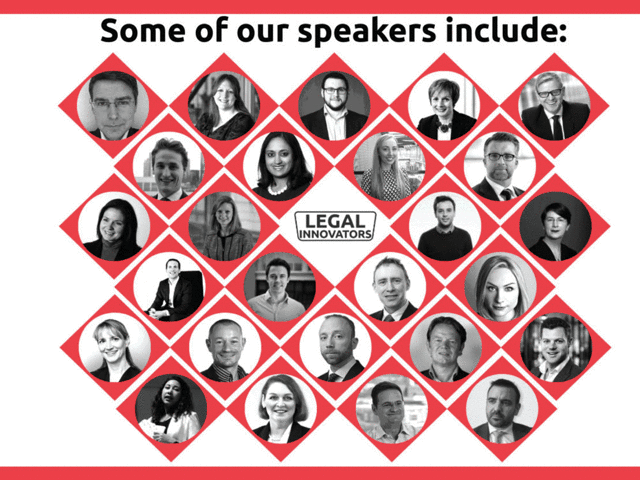
Many people are now heading off on holiday after what has been a frenetic period of change in the realm of legal tech and law firm innovation. In this article Artificial Lawyer identifies four key themes that help to make sense of what is happening.
These four themes are:
- Consolidation and Platformization;
- Continued Proliferation of Legal Tech Companies;
- Incubator/Accelerator Growth;
- More Than Law – Law Firms as Tech Producers.
—
Consolidation and Platformization
Readers with good memories will note that when legal AI pioneer RAVN was sold to iManage in May 2017 there was a lot of discussion about whether the market was entering a period of consolidation.
At that point it wasn’t. In fact, the opposite was occurring, the market was just then experiencing a surge in new and original legal tech companies in such numbers there was a giant wave of startups breaking over the legal sector. In some cases, whole new verticals in the legal tech market were taking shape. Clearly not a moment of consolidation.
Today, in mid-2019, there is still a stream of new companies coming to market, but often they are very similar to what came before (though some may be better…), which perhaps is itself a symptom of a maturing market. As explored below, each one has everything to play for, but the market is not pulsing with the creation of whole new product categories as it did in 2016/2017.
And, it’s worth noting that just because the category variation of new legal tech companies may have slowed, this has no bearing on the level of the total addressable market they are after – which remains huge, and arguably growing. I.e. just because several electric vehicles all start using a similar battery design does not mean the potential market for these vehicles has reduced.

At the same time the drum beat of legal tech M&A deals has been steadily quickening, especially since the latter part of 2018. A case in point was eBrevia selling to the US conglomerate, Donnelley Financial, in December 2018.
In the analysis article that followed, Artificial Lawyer made this observation:
‘One company Artificial Lawyer could definitely see as a target for M&A would be LEVERTON, the originally Germany-based legal AI and prop tech company. They’ve been around a while and have now a new management team.’ – AL (Dec 2018)
And as it turned out, this was a good prediction. Eight months later Leverton has been bought by MRI Software.
We have also recently seen Thomson Reuters bag HighQ – which had put itself on the market and created a bidding war. And we saw the investment fund-backed Litera purchase Workshare – which clearly has a strategy to build out a much larger platform using this investor cash (so expect more from them…).
And although a lot smaller deal – and in a parallel market segment – UK law firm Simmons & Simmons acquired legal engineering firm Wavelength Law in July.
We have also seen law company Elevate go on a buying spree in the NewLaw and legal tech world, picking up in particular legal AI company LexPredict in November 2018, and a handful of other businesses around the world.
There are others, although these are probably the ones readers most remember. So, clearly something has been happening over the last nine months or so.
Artificial Lawyer thus has to call it: consolidation is happening, whether we like it or not, and regardless of the pros and cons for the end users of all this tech.
However, this is a synthesis process relative to what remains a very diverse and atomised market. This is not Apple merging with Microsoft and occupying a monopoly position across the planet, this is still a market with a very large ensemble cast of active elements. Yet, any chain reaction has to start somewhere.
But, what does it all mean? Here are some thoughts:
- There are still hundreds of companies in the legal tech market, how can this be consolidation? And even if it is, does it matter? The issue is mostly around which companies are coming together. If two small startups that few have heard of, and have even less clients, come together it may be exciting to see such a combination, but it likely does not impact the market. When a global legal publisher/tech company buys a medium-to-large company that works with dozens of major law firms and is well-established, then it does matter. So too when global corporates such as Donnelley Financial or MRI buy legal AI companies, massively extending their potential client reach.
- On the face of it they are primarily successful companies that have built a brand and a client following, they are not ‘distress sales’. Thomson Reuters, for example, was not ‘saving’ HighQ. It simply really wanted to add it to its already substantial offering. HighQ equally could have stayed as it was – if it wanted to – for many years to come. Therefore these have been ‘strategic sales’, where the M&A was driven by a mutually beneficial business vision.
- Not all consolidation has to be about merger. Combining into a single economic and legal entity is a neat and efficient way to do things. But, platformization is a force in the market that has seen companies cosy up together without going as far as merger. In some cases this has involved one party investing in the other, sometimes just partnering closely, sometimes both. Recent examples include: Seal Software and DocuSign, Clause and DocuSign (again), both are examples of investment and partnering, and LexisNexis and Axiom spin-out Knowable is an example of very close partnering with an economic benefit for both.
- More generally we are seeing every company out there finding ways to link to any other that may make things easier for customers to use it, so we see integrations between companies such as NetDocuments and legal AI company Diligen and many others. It’s all part of the wider theme of offering a more ‘one stop shop’ experience for the users. In short, you may have great tech, but what the user experience is like has become increasingly vital.
- And, why is this happening now? The simple answer is: there is money to be made in creating the largest one-stop-shops that can be assembled to service the now rapidly expanding tech and data needs of law firms and corporates. There has been so much turmoil in what was previously a relatively peaceful legal tech market over the last few years, it took buyers a while to get their strategic goals updated and to fully understand customer demand. Now, intelligence has been gathered, analysed, and new growth plans are in place, the money has been set aside for purchases, and a sense in the market that ‘now’ is the moment has taken hold. Sometimes these things can become self-perpetuating. One M&A deal triggers a rival to do something similar. One rival to a target that was bought for millions of dollars decides it also now wants to accept a takeover. And so it goes.
- Final sub-point here: is this consolidation going to soak up all the well known companies into one or two giants? The short answer is: no, (no more than we have already via TR and LexisNexis). Look at the range of buyers, this is not being led all by one or two companies. The consolidation is seeing tech brands taken up by a variety of companies, arguably some that might one day in the future like to challenge TR and LexisNexis, or chunks of their business.

Continued Proliferation of Legal Tech Companies
Although it may seem paradoxical, even though we have consolidation and that a lot of new companies are similar to the ones from the surge of 2016/2017, this does not mean a steady flow of new startups won’t arrive and knock the incumbents off their perches. Why? Because they may do what others already do, but do it better.
They may be faster, more easy to use, better priced, better serviced. And are simply better products.
And price especially may become more of a factor here, especially as the market widens beyond the larger commercial law firms. Who said that doc review using NLP/ML had to cost $x,000. Why not a fraction of that? Why does a licence for Contract Express, for example, cost what it does? Why not a fraction of that? Who sets these prices? Is there even a transparent market for these tools? Or is this a repeat of the sometimes asymmetrical seller-to-buyer relationship that law firms have had for decades?
What good does it do if tech companies are helping law firms to be more cost effective and efficient, if they in turn operate with a pricing model that exploits customers’ lack of understanding?
(Note: as an aside, AL heard this story from two different sources: a well-known legal tech brand that usually sells licences by the truckload to each customer in terms of ‘seats’; turns out 90% of the seats purchased to use this productivity application, each which costs a lot of dosh, are never used by those customers.)
It may be unlikely now for a newbie to ‘knock out’ one of the big brands, but a host of newbies can certainly nibble away at them and also try to generate new demand. And, let’s face it, there are better ways to do things than they are done at present. Moreover, consolidation could actually make some of these aspects, especially on price, even worse. So, to paraphrase Bill Clinton: ‘It’s the economics…’ that may prove to be a deciding factor for any new startups out there who fancy a pop at the market.
Also, relatively speaking, setting up a legal tech company has a low barrier to entry – whether it will succeed is another matter, but getting started is not a show stopper. Imagine starting a new car company – you’d need $100 millions just to get something into a testing phase. A legal tech startup can get going with a team of three or four people and some savings in the bank (not that there’s any shortage of angel and seed funding out there if people want it) – and that is one of the great things about software.
If you have a computer, have a truly innovative idea and can write great code, the world is your oyster…or it could be. No guarantees, of course…but still, there is something liberating about this.
So, Artificial Lawyer is certain this site will still be writing about exciting new, companies coming to market in 2029 as much as it is today, although we can be sure the consolidators will be much, much larger than they are today as well.
If you think the game is up, you’d be wrong.
Even with all of the deals we have seen, and all the companies now occupying well-established product categories, to a startup it’s always early days. Like a new kid at school, they don’t care what came before, for them it’s a whole new world full of possibilities.
Just look at Lexion, for example. Do you believe this new legal AI company which has been funded by US law firm Wilson Sonsini, among others, doesn’t think the world is its oyster? That today is as good a day to take on the world as any other day?
That’s what this site has always loved about startups, it’s that spirit that says: ‘I don’t care what came before. I’m going to carve out my place in the world and make a difference.’
Moreover, companies that survive often learn to reinvent themselves, especially in the tech world. Look at Apple, for example, that went from computer hardware and some software, to digital music platforms and audio players, to mobile phones and the App Store, and is now pushing into TV and financial services. Whether they will make their own autonomous car or not remains to be seen. Maybe they’ll just supply some of the software. Either way, they are not standing still.
In short: consolidation is real, product category creation has slowed, but that doesn’t preclude new challengers, nor the re-invention of those who’ve been around a while.

Incubator/Accelerator Growth
Once upon a time there were really only two well-known legal tech incubators in London, one was MDR LAB, the brainchild of Nick West, CSO, at Mishcon de Reya. It started in 2017 and immediately gained plaudits for developing a win-win scenario where startups and lawyers at the firm both gained insights and both parties benefited in the long run.
Created around the same time, global law firm, Allen & Overy, launched Fuse, its ‘tech innovation space’ in April 2017. Fuse also had win-win properties, but had a slightly different approach as it accepted companies that were far from being startups any longer.
Then, in quick succession this year we saw Slaughter and May and then Big Four firm, PwC, also both launch incubator/accelerator spaces. And that’s just in London.
As you cast the net wider we can see that there are also ‘legal tech growth programmes’ with LexisNexis in California, one at Duke Law School also in the US, and one created in Austria by a co-operative of leading law firms. We’ve also seen one launch in India this year.
Thomson Reuters has also been bringing in several legal tech companies to work with them, although these are more long term relationships, rather than fixed term programmes (and it makes you wonder if those won’t end with either TR buying the startup or perhaps eventually building something on their own that is ‘inspired’ by them…?) It also has a startup lab out in Switzerland, although this is not explicitly for legal tech.
What does it all mean? Why do this? Each backer has different reasons. But, generally it’s all about the old ‘win-win’ scenario. The startups want access to the target audience and data to help improve their offering, the hosts want to gain kudos from being involved in cutting edge stuff, for their staff to learn more about legal technology, and of course actually put to real use some of that tech whether inwardly facing and/or to wield it for the benefit of their clients. And depending on who they are, perhaps also to invest in a growth company.
Does this all have a massive impact on the market? No. But, Artificial Lawyer has to say it’s a very good thing these incubators exist. Although many law firms and inhouse legal teams do pilots with legal tech companies there’s something special about a really focused programme like those above.
A focused programme means high levels of involvement from the host, and hopefully a more rewarding outcome for the startup – who will often have their staff either based with the host, or visiting it very regularly.
Not every startup can get a law firm to do a long term pilot with them, nor is every firm prepared for what that entails. So, incubators really can help connect the right parties together.
People often ask: are there too many incubators? The answer is: no. They have become in a short space of time a vital component in the legal tech ecosystem. And, related to the point above, also help foster fresh talent and ideas, and assist this ‘new blood’ in coming to market. And that’s a good thing.
Maybe law firms should think about creating annual incubator-style programmes for all the tech they pilot, whether from a startup or more mature company? That way, they can focus on it in a more structured way and assign dedicated staff to managing the process for a set time each year. And these don’t all have to be for public view either. At present many firms pilot on an ad hoc basis, and that can be a bumpy ride for all involved.
All law firms tend to hire cohorts of junior lawyers at certain times of the year, why not handle pilots in the same way?

More Than Law – Law Firms as Tech Producers
For some time, a small number of law firms have been spinning up DIY tech applications that will help themselves, and/or their clients. But, generally this has been done on a small scale. However, it does feel now that things are changing and that there is a very real prospect of law firms turning their ability to build tech applications into a competitive advantage.
Allen & Overy was something of a trail-blazer here with its AOSphere project – launched back in 2001. AOSphere now has 11 products that it sells to clients on a subscription basis. It builds a lot of this itself, but has been known to work with other tech companies to help, such as Neota Logic. The group says it now has over 450 clients using a range of products, several of which are a type of expert system that help financial services clients navigate areas such as cross-border compliance issues.
Steadily, other law firms have built out their own projects. And it should be noted, these are not just firms buying in X tech company’s licence and then re-selling its output (although there is a growing level of white labelling in the market too), this is law firms building distinct proprietary products, although they may be constructed from a tech company’s software.
Some of the firms engaged in this, among others, include: Freshfields, Linklaters, Clifford Chance, DWF, Kennedys, BLM, Reed Smith and Clyde & Co. In the latter case, Clyde & Co has just built a parametric smart contract for the insurance sector and is now seeking to sell the application to its insurance clients, which is a perfect case in point.
What does this all mean?
What this shows is that law firms are starting ….and ‘starting’ is the key word here……to see offering the ability to make and sell their own tech products to clients as an important differentiator. Essentially this is doing more than law, this is software product design and development. Lawyers may be leading on the product’s goals, but they are not building this stuff themselves (in most cases).
The real question is: will this become a matter of competitive advantage?
It has been fascinating to see how the insurance law firm group in particular are now all investing in tech development for clients, i.e. building and providing (or selling) tech applications designed specifically to help those clients.
Clearly they believe not to have this More Than Law offering would be an issue. If it is, we don’t know yet. But, as one can see, things are moving in that direction.
Will this reach the point where clients really are picking firm A over firm B, all because of the homemade tech products on offer? Could be. And when that happens law firm strategy discussions really will be a little different to how they were in the past.
So, all in all, exciting times for law firms.

—
Conclusion
Well, that was a lot to read, so Artificial Lawyer will keep this brief.
There’s loads happening, the market is evolving rapidly, the world of legal tech and law firm innovation has never been so exciting. 2019 is only halfway through and already has produced many fascinating developments. The rest of the year may well be the same.
P.S. if you’d like to come along to Artificial Lawyer’s first all-day conference on legal innovation to learn more about this area, share your views and do some excellent networking, then check out the link below:
Legal Innovators – Learn, Share and Network!
—
[ Artificial Lawyer is now on holiday until 14th August. The editorial team wishes you a very happy summer break and looks forward to catching up with everyone later in the month. ]

I’m surprised not to see a mention of Nextlaw Labs (or Nextlaw Ventures or Nextlaw In-House Solutions) given they were one of the first movers in this space.
Richard, you constantly amaze us. Your perspicacious assessments are as well informed as anyone in our space. Have a great holiday so you can keep it coming upon your return.
In today’s world are the rich big corp. and the poor people who get run over because you just can’t past the attorneys of the big corp even when the poor people are correct. so its time to get equal so this is the only way to stay up and have a chance of rights to proceed to stand up against the super attorneys is to have a way to do just what big corp is paying for. if it was not for case mine support I would never make it past the others with deep pockets. thanks for the support